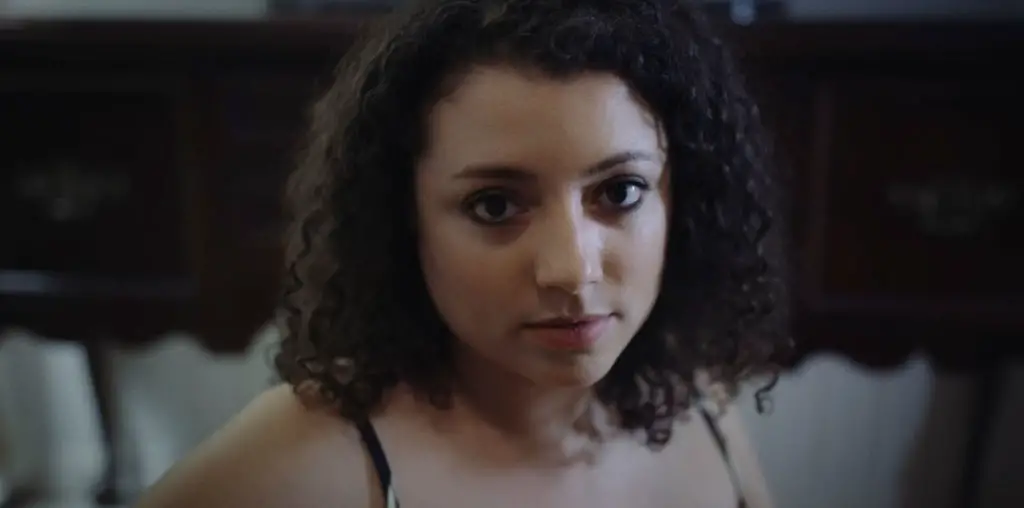
“Return of the Secaucus 7” made John Sayles a star on the art house circuit, but it was “Lianna,” his second, lesser known, film where he proved that he was a real movie maker. Here, for the first time, was the wit, sensitivity, and intelligent observation of human beings under intense pressure that have been Sayles’ trademarks ever since.
“Lianna” stars Linda Griffiths as a woman in one heck of a transition. A decade and a half ago, Lianna dropped out of school to marry her movie-obsessed English professor (Jon DeVries). As the film opens, the pair have a couple of charming, smart children (Jesse Solomon and Jessica Wight MacDonald) to show for the relationship — but little else. The professor is funny and extremely smart, but also cold and manipulative, while Lianna’s only outlet for her intelligence is the occasional night school class. Just to make matters worse, he expects Lianna to play the role of the perfect academic spouse at university parties — even if he is prone to furtively boffing the occasional coed whenever wifey’s not present. Just in case we’re missing the point, his name is “Dick.”
Their marriage is rapidly approaching the rocks, but the clincher comes when Lianna is lovingly seduced by her night school teacher, Ruth (Jane Hallaren). Suddenly, Lianna comes to the realization that she’s preferred women all along. She’s in love and happier than ever before.
When she prematurely blurts out the news to Dick, however, the result promises to be remarkably ugly. Hubby threatens to use the information to get the divorce settlement he wants — which means little alimony, and final say about the custody of the children. It gets worse. As word slowly seeps out into the community, the kids are told more than they may really need to know and Lianna is given the cold shoulder by her best friend (Jo Henderson).
Even her new lover is keeping Lianna at something of a distance on account of career concerns and because she may be returning to a prior relationship. The only person who seems not to know she’s a lesbian is Dick’s testosterone-frenzied colleague, Jerry (John Sayles) — who’s only interest appears to be bedding the pretty divorcee-to-be on the rebound.
In the hands of a doctrinaire, over-compensating male liberal (and I’ve known a few), “Lianna” could have been a simplistic tract on the evils of regressive sexual politics. Instead, it’s a complex story of a small slice of society in transition, and everyone gets their say. That includes, the moderately villainous professor Dick, his and Lianna’ loquacious, wildly masturbating, “Hustler” hiding thirteen-year-old son, the homophobic best friend and even John Sayles’ lecherous but good natured academic.
“Lianna” also marks a great leap forward in terms of acting. The stiff theatrics that marred “Return of the Secaucus 7” are nowhere in sight. Instead, we have the first of many outstanding ensembles, led by a restrained, poignant performance by Linda Griffiths and martini-dry turns by Jane Hallaren and Jon DeVries as the two, not completely dissimilar, professors in Lianna’s life. (There’s also a one-line walk-on by a shockingly young “Christopher Elliot”….Just think, “Cabin Boy” was only twelve years away!)
In many respects, “Lianna” marks the beginning of Sayles career as the ultimate democratic socialist filmmaker; the only writer-director I know who clearly illustrates the humanist ideals of the democratic left. In Sayles’ world, when you’re talking about “the people,” you’re not talking about an abstraction, but a group of genuine individuals, each with their own dreams, obsessions and quirks.
No one portrays communities better than John Sayles. And it started with “Lianna.”

